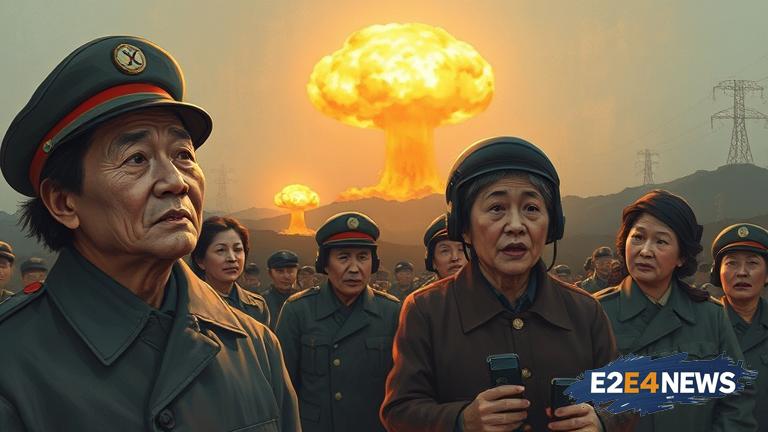It has been 80 years since the atomic bombs were dropped on Hiroshima and Nagasaki, killing hundreds of thousands of people and leaving many more with severe injuries and long-term health effects. Among the survivors were thousands of Koreans who were forced to work in Japan during WWII and were caught up in the devastating blasts. Despite the passing of time, many of these Korean survivors are still suffering from the physical and emotional trauma they experienced. They have been fighting for recognition and compensation for their suffering, but their efforts have been met with resistance from the Japanese government. The Korean survivors have reported experiencing a range of health problems, including cancer, radiation sickness, and mental health issues. Many have also struggled to come to terms with the trauma they experienced, with some experiencing flashbacks, nightmares, and anxiety. The survivors have been seeking official recognition of their experiences and compensation for their suffering, but the Japanese government has been slow to respond. In recent years, there have been some efforts to provide compensation to the survivors, but many feel that it is too little, too late. The Korean government has also been criticized for not doing enough to support the survivors and to push for recognition and compensation from the Japanese government. The issue of the atomic bomb survivors is a sensitive one in Korea, with many people feeling that the country’s history and experiences have been overlooked and ignored. The survivors have been working to raise awareness of their experiences and to educate younger generations about the impact of the atomic bombs. They have also been seeking to preserve their stories and experiences, with many writing memoirs and giving interviews to document their histories. Despite the challenges they have faced, the survivors remain determined to seek justice and recognition for their suffering. They have been supported by human rights groups and other organizations, who have been working to raise awareness of their experiences and to push for compensation and recognition. The issue of the atomic bomb survivors is not just a historical one, but also a contemporary one, with many people still living with the effects of the bombs. The survivors’ experiences serve as a reminder of the devastating impact of war and the importance of working towards peace and reconciliation. The Korean government has announced plans to provide additional support to the survivors, including medical care and financial assistance. However, many survivors feel that this is not enough and that more needs to be done to address their suffering. The Japanese government has also been criticized for its handling of the issue, with many feeling that it has not done enough to acknowledge and compensate the survivors. The survivors’ stories are a powerful reminder of the importance of promoting peace and preventing the use of nuclear weapons. They also highlight the need for greater recognition and compensation for the victims of war and for greater support for those affected by conflict. The issue of the atomic bomb survivors is a complex and sensitive one, with many different perspectives and opinions. However, one thing is clear: the survivors deserve recognition, compensation, and support for their suffering, and it is imperative that their experiences are not forgotten. The legacy of the atomic bombs continues to be felt today, with many people still living with the effects of the blasts. The survivors’ stories serve as a reminder of the importance of promoting peace and preventing the use of nuclear weapons, and of the need for greater recognition and compensation for the victims of war.





